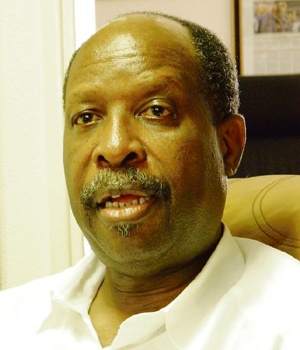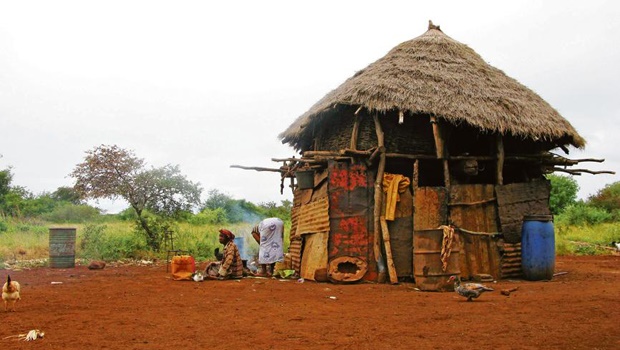
Unconfirmed figures indicate that about 490 poachers were “neutralised” – arrested and/or killed during skirmishes with rangers inside the Kruger National Park over the past five years. At least 80% of them were Mozambican. That’s 392 Mozambican men.
The park refuses to say how many of these men were killed. But City Press learnt reliably that more than 220 poachers lost their lives over the past five years.
Last year alone, 110 Mozambicans were “neutralised” while poaching rhinos inside the Kruger Park, and about 30 South Africans too. In 2013, an unconfirmed 47 poachers died in firefights with rangers.
On one day two weeks ago, 10 rhino carcasses were found and there were 11 poacher casualties and injuries during skirmishes between rangers and poachers. They were all from Mozambique.
By April this year, 33 poachers were arrested in the Kruger Park, most of them from Mozambique. Last year, a record 151 poachers were arrested in the park – also mostly Mozambicans.
“The link between the destruction of wildlife and poverty is established and very strong. We’re assisting the Mozambican government to preserve wildlife. To do that, we have to help create alternatives to communities around the park. We have to first stop the killing and criminalisation of Mozambicans. We have to focus on the syndicates.”
Simão is as good as his word.
Last year, landowners on the Mozambican side of the Kruger Park said that whenever rhinos made it through the park’s fence, they “contact the Kruger, which dispatches a helicopter to chase the rhinos back inside”.

“Rhinos don’t last in Mozambique for more than a couple of days,” said the owner of a game lodge on the border of the southern part of the park.
But that was then. In the eight months since the Chissano Foundation’s preservation initiative began, the Mozambican government and the Peace Parks Foundation signed a memorandum of understanding, beefed up security around the border with the Kruger Park and launched antipoaching operations around Mozambique’s adjacent Limpopo National Park. There has been a “marked changed” in poaching patterns.
The Mozambican government has also deployed a specially trained environmental police force along the border. City Press learnt from two senior SA National Parks officials in the Kruger Park that “up to 70% of all poachers enter from the western boundary of the park”.
“It’s a combination of the working relationship with the Mozambican government, private land operators and the Kruger, but there’s no doubt the majority of poachers now enter the park from villages in South Africa dotting its western boundary,” said one senior official.
“Last year we saw most of the poachers entering the Kruger from Mozambique. It’s changed dramatically. Our poachers, still mainly Mozambicans, now enter from South Africa. They’ve shifted their operations – guns and transportation – to South Africa. There’s no doubt about it,” said another senior Kruger Park official.
Speaking from his office in Maputo, Simão clearly understood the challenge.
“We are talking about a $19 billion (R230 billion) criminal trade dealing in wildlife. Rhino-horn trafficking is part of that trade. Antipoaching and counter-trafficking programmes form part of what we do,” he said.
“Mozambicans know that to poach is risky and illegal. They risk their lives, their children’s lives. But because they profit, it’s worth the risk.
“We have to understand how the syndicates operate. We’re getting there. We know that when a poacher is killed, the syndicate will still bring the money to the family. So the family reckons: ‘We’ve lost our son, but are being compensated.’
“So the next son also goes. At the foundation, we try to focus on creating alternatives.
“The foundation is focusing on the human development of communities taking those risks. We know from other countries that better-off communities don’t poach,” Simão said.
“There’s not a single rhino left in Mozambique because of poaching. We need rhinos back in Mozambique. Until April last year, poaching was not a crime in Mozambique. This is a long and tough road ahead. We’re certain our country is committed to giving communities decent alternatives to turning criminal.
“Then you also restore people’s dignity. Our people don’t like being on the wrong side of the law. Our kids don’t want to leave school to poach.”
Wildlife trafficking
President of the Environmental Investigation Agency Allan Thornton has asked the US secretary of state to “certify Mozambique and enact substantial trade sanctions that include ... all listed specimens under the Convention on International Trade in Endangered Species of Wild Fauna and Flora exported to the US” because of large-scale poaching and illegal trade in rhino horn and elephant ivory.
In his letter, Thornton wrote that this “directly undercut President [Barack] Obama’s July 2013 executive order on combating wildlife trafficking”.
“Available evidence indicates that Mozambican nationals constitute the highest number of foreign arrests for poaching in South Africa. Organised crime syndicates based in Mozambique are driving large-scale illegal trade in rhino horn and elephant ivory and subsequent smuggling to Vietnam and other consuming nations such as China,” the letter reads. – Pearlie Joubert




 Publications
Publications
 Partners
Partners








